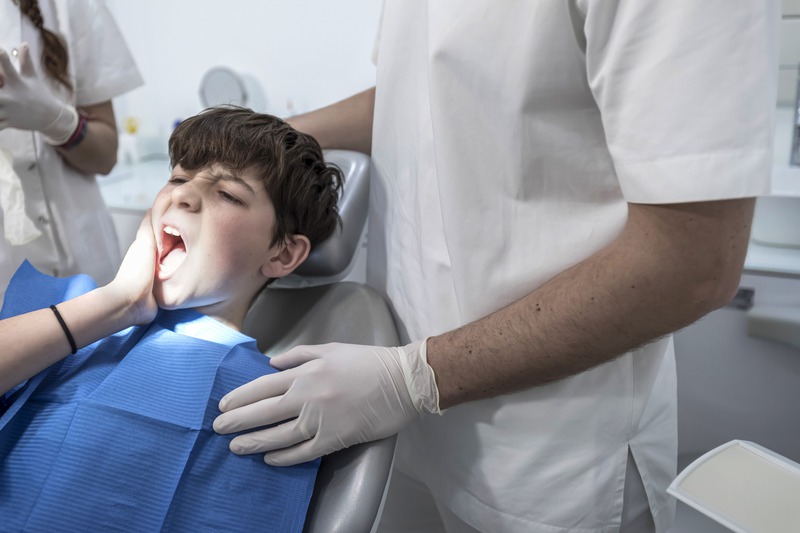Dental emergencies can happen at the most inconvenient times. Whether it’s a sudden toothache, a chipped tooth, or a sporting accident, knowing how to respond can make a big difference in pain management and recovery. Let’s dive into what you can do to handle these situations effectively.
Recognizing a Dental Emergency
First, it’s important to determine whether your situation truly qualifies as a dental emergency. Not every dental issue demands urgent care. Here are some symptoms and scenarios that likely necessitate immediate attention:
-
Severe toothache that won’t subside
-
Swollen gums or severe oral pain
-
Chipped or broken teeth with sharp edges
-
Loss of a dental crown or filling
-
Bleeding gums that don’t stop
-
Injury to the mouth, jaw, or face
Immediate Actions for Common Dental Emergencies
Knowing what to do in the minutes following a dental emergency can mitigate damage and reduce pain. Let’s look at some common emergencies and how you can handle them.
Dealing with a Toothache
A toothache can range from mildly annoying to unbearably painful. Here’s how you can handle it:
-
Rinse your mouth with warm water to clean it.
-
Floss carefully to remove any food debris lodged between your teeth.
-
Avoid applying aspirin directly on the tooth, as it can damage your gums.
-
Take over-the-counter pain relief medication if necessary.
-
Contact your dentist for an appointment as soon as possible.
What to Do with a Knocked-Out Tooth
If you or a loved one suffers a knocked-out tooth, time is of the essence.
-
Handle the tooth carefully by the crown (the top part), not the root.
-
Rinse the tooth gently with water if it’s dirty, but don’t scrub it.
-
Attempt to place the tooth back in the socket if it’s possible.
-
If reinsertion isn’t possible, place the tooth in a container of milk or saliva.
-
Visit a dentist within 30 minutes to increase the chances of saving the tooth.
Managing a Chipped or Broken Tooth
Noticed a chip or break in your tooth? Take these steps:
-
Rinse your mouth with warm water to keep it clean.
-
If there’s bleeding, apply a piece of gauze to the area for about 10 minutes.
-
Use a cold compress on the outside of the mouth to reduce swelling.
-
Save any fragments of the tooth and bring them to the dentist.
-
Schedule an appointment with your dentist promptly.
Treating a Lost Filling or Crown
Losing a filling or a crown can be alarming, but it’s manageable with these steps:
-
Keep the area clean by rinsing your mouth with warm water.
-
Temporary adhesive sold over the counter can help reattach it.
-
Avoid chewing in the affected area to protect your tooth.
-
Visit your dentist as soon as possible to have it properly restored.
When to Consult an Emergency Dentist
Knowing when to consult an emergency dental clinic Easton is vital. Generally, you should seek urgent care if the pain is intense and cannot be managed with over-the-counter medication or if an injury has occurred that involves fractures or dislodgement of teeth.
Preventing Future Dental Emergencies
Prevention is always better than cure. Here are some tips to prevent dental emergencies:
-
Wear a mouthguard during sports or physical activities.
-
Avoid chewing hard items like ice and hard candy.
-
Do not use your teeth to cut things; use scissors instead.
-
Ensure regular dental check-ups to catch potential issues early.
Finding the Right Dentist for Emergency Care
Choosing a dentist who can effectively handle emergencies can give you peace of mind. Look for dentists who offer after-hours services and have good reviews for handling emergencies. It’s also a good idea to check if they provide other services like dental cosmetology in Easton to cover all your dental needs.
Home Remedies for Temporary Relief
While seeing a dentist is critical, sometimes you need immediate relief at home. Here are a few home remedies:
-
Warm salt water rinses can help reduce swelling and pain.
-
Applying a cold compress can help with swelling and numbing pain.
-
Clove oil is known for its numbing properties and can be applied to the affected area.
-
Over-the-counter products like dental wax can be used as a temporary fix for broken surfaces.
Maintaining Dental Health for the Long Term
The job doesn’t stop at managing emergencies. Regular dental check-ups and good oral hygiene practices form the foundation of dental health. These habits are essential:
-
Brush your teeth twice daily with fluoride toothpaste.
-
Floss daily to remove particles between teeth.
-
Limit sugary drinks and snacks.
-
Visit your dentist for regular check-ups and professional cleaning.
Staying Calm in a Dental Emergency
Panic can worsen a situation. Staying calm can help you think clearly and take the right steps. Have a plan in place for dental emergencies, including contact information for your local Easton dentist, to ensure prompt action when the need arises.
Final Thoughts
Handling dental emergencies with the right information can protect you from potentially severe outcomes. From taking immediate action to choosing the right professional care, your actions make a significant difference. Preparedness and understanding are your best tools in safeguarding your dental health.




